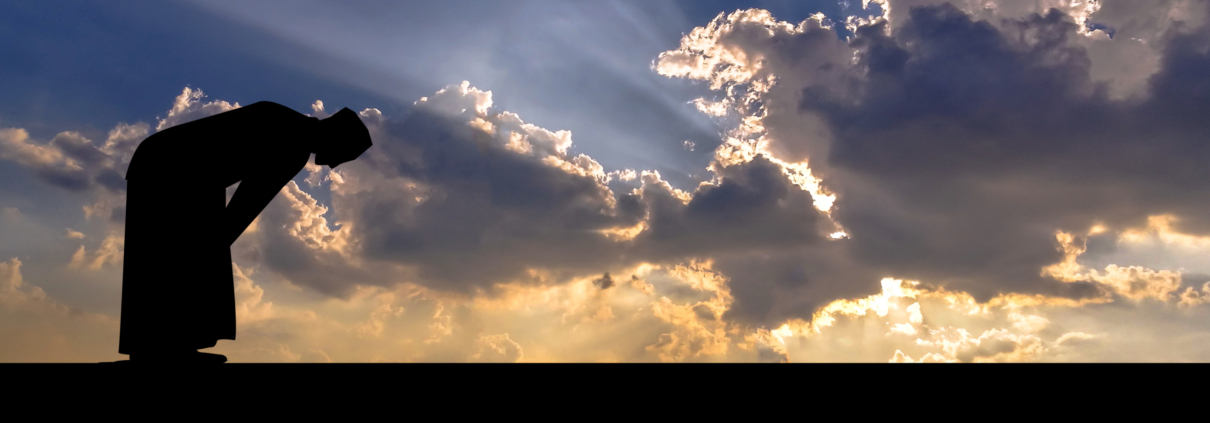Spectrum of Various Islamic Scholars Views on the Egyptian Revolution
A wide spectrum of the views of various scholars’ views on the Egyptian Revolution.
Mufti Abdurrahman ibn Yusuf
The main thing we need to realize is that until we become worthy of having decent people above us, then no decent person will come above us. The Prophet (peace and blessings of God be upon him) said, “However you are, that’s the type of people that would be put above you.” Whatever is happening in the Muslim world is also because of our sins.
Look at the current day leaders today- you think you and I can do better than them once you’ve got that power and force? I think the simple way to understand that is, how much do we do in the position that we are in right now? In the limited power we are in right now. Are there people you owe money to and you haven’t give it to them yet? Think about it. Are there people you’ve wronged and not sought forgiveness for? Do you have some hatred in your heart for somebody and you’ve not been able to rectify it?
You see we are all sinning according to the scope we have. And the more scope you have the bigger the sins can be. We are sinning and weak in the limited scope we have and if we are given more scope, our sins will just increase.
In Sahih Bukhari, from Abu Musa al-Ashari that the Prophet (peace and blessings of God be upon him) said, “Allah gives rope to these oppressor, but when he then does seize them, then there is no escape.”
Shaykh Abdal Hakim Murad
Shaykh Hasan al-Yusi spoke against the Sultan of Morocco: “I just break the dishes made of earth, while you break Allah’s dishes- you break human beings.”
Shaykh Ahmadou Bamba of Senegal opposed the French and the moment the French put the chains on him, Allah gave him his spiritual opening. The French took him on a ship and forbade him from praying on the ship- the Shaykh stepped off the ship and began praying on the water.
Mufti Ali Gomaa
There is, however, always reason for hope and optimism. As the Quran teaches us: “With every difficulty, there comes ease.” It is with great national pride that I affirm my confidence and trust in the Egyptian people to retreat from violence and aggression to peace and calm. At that point, our nation will have to engage in some profound introspection and soul-searching to make sense of the new state of affairs. Until then, however, the lives and welfare of our countrymen – regardless of their political beliefs – must be our first priority.
There is no denying that we are on the edge of a new period of Egyptian political and social life. The youth of our nation have organised en masse to make their voices heard, and to demand changes. They have demonstrated great resolve in their pursuit of fundamental reforms. There is no doubt that reform is a necessity. Indeed, I have long called, through the Misr El Kheir Foundation, for comprehensive reforms in economics, health and social solidarity.
Imam Zaid Shakir
The vast majority of the people of Egypt have peacefully protested to make their voices heard. They are saying loud and clear, “We demand our dignity, we demand the right to choose our leaders in free and fair elections, and we demand that the wealth our land produces stays in our hands.” These are demands that should resonate with every American. Time will tell how far we have strayed from our foundational principles.
None of us can pretend to know what the Almighty has decreed concerning the outcome of this affair. However, we do know that He hates oppressors. May God bless and protect the people of Egypt and keep them in His care.
And we desired to bestow our grace upon those oppressed in the earth; to make them the leaders and to make them the rightful heirs. Qur’an 28:5
Shaykh Hamza Yusuf
Having said that, I believe we should maintain a good opinion of the scholars who either take a position or choose to remain silent-a valid option during fitnah. We must recognize that personal ijtihad in difficult times is to be respected. The Mufti of Egypt is an honorable and pious man; he understands the complexity of the situation, the dangers of instability, and the tragedies that can quickly arise when conflagrations take a life of their own. Moreover, his position is certainly consonant with a traditional approach that was taken by many of the great scholars of the past. While some may not agree with his opinion, Muslims should respect religious authority, acknowledge a scholar’s right to it, and not assume we know anyone’s intentions. God alone is the Judge of men’s hearts.
Fitnah is worse than killing, according to the Qur’an, and in this case, the fitnah is persecution. The Egyptians have been persecuted for too long, and while traditional scholars since the days of the early fitnahs have sided with stability in order to prevent bloodshed that often resulted in worse situations than the ones being opposed, in an age where peaceful protest is the only rational means of a people to redress the wrongs of their government, the scholars should not only support but acknowledge this change in the world. The situation in the Middle East is intolerable, and as John F. Kennedy rightly remarked, “If we make peaceful revolution impossible, we make violent revolution inevitable.”
